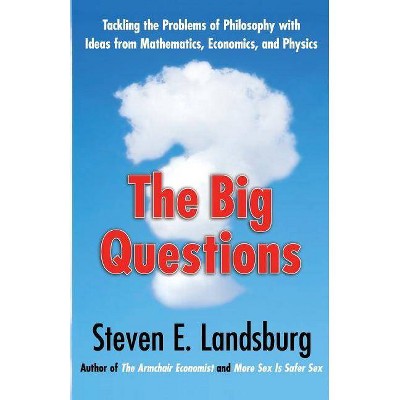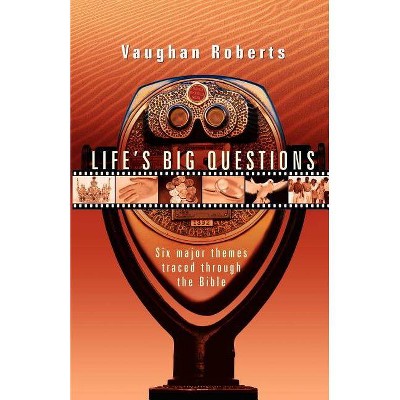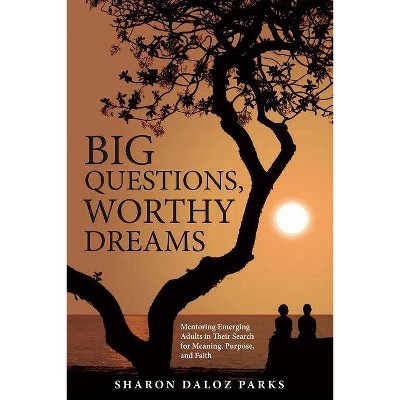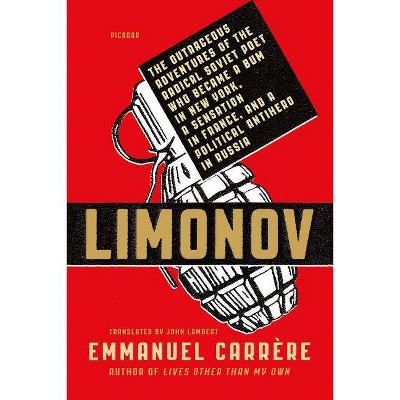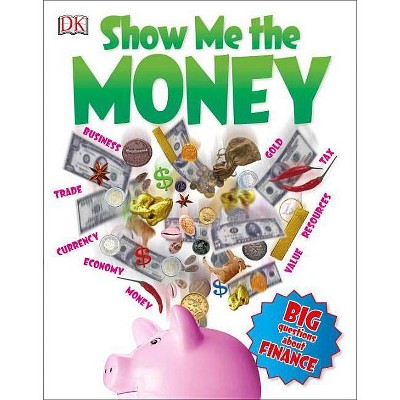Philosophy's Big Questions - by Steven M Emmanuel (Paperback)
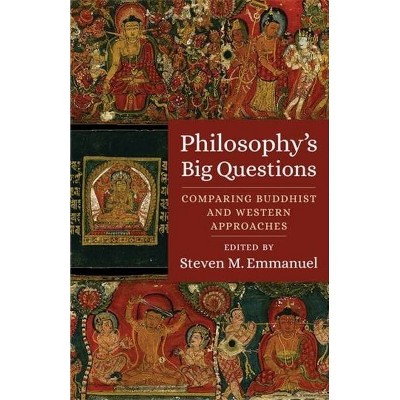
Similar Products
Products of same category from the store
AllProduct info
<p/><br></br><p><b> About the Book </b></p></br></br>The essays in this book turn to the major figures and texts of the Buddhist tradition in order to expand and enrich our thinking on enduring philosophical questions. Featuring striking and generative comparisons, <i>Philosophy's Big Questions</i> offers readers new conceptual tools, methods, and insights for the pursuit of a good and happy life.<p/><br></br><p><b> Book Synopsis </b></p></br></br>Certain questions have recurred throughout the history of philosophy. They are the big questions--about happiness and the good life, the limits of knowledge, the ultimate structure of reality, the nature of consciousness, the relation between causality and free will, the pervasiveness of suffering, and the conditions for a just and flourishing society--that thinkers in different cultures across the ages have formulated in their own terms in an attempt to make sense of their lives and the world around them. <p/>The essays in this book turn to the major figures and texts of the Buddhist tradition in order to expand and enrich our thinking on these enduring questions. Examining them from a comparative and cross-cultural perspective demonstrates the value of alternative ways of addressing philosophical problems, showing how different approaches can produce new and unexpected kinds of questions and answers. Engaging with the Buddhist tradition, this book shows, helps return philosophy to its practical as well as theoretical aim: not only understanding the world but also knowing how to live in it. <p/>Featuring striking and generative comparisons of Buddhist and Western thought, <i>Philosophy's Big Questions</i> challenges our thinking in fundamental ways and offers readers new conceptual tools, methods, and insights for the pursuit of a good and happy life.<p/><br></br><p><b> Review Quotes </b></p></br></br><br>Interest in Buddhist philosophy has grown exponentially in recent years. These essays demonstrate that Buddhist philosophy has significant contributions to make in the major areas of philosophical inquiry. From foundational topics in metaphysics, epistemology, and ethics to more focused philosophical issues pertaining to mind, religion, and morality, they insightfully explore important questions of perennial concern in Western as well as Buddhist traditions.--Christopher W. Gowans, author of <i>Buddhist Moral Philosophy: An Introduction</i><br><br>Our big questions are above all human questions about the things that matter most--happiness, relationships, fairness, or the mystery of mind itself. This brilliant volume provides a rich array of Buddhist responses to such questions. It breaks new ground in placing the creativity of time-honored Buddhist thinkers in conversation with, but not secondary to, western-formulated questions on free will, evil, or the power of compassion. Each chapter expands the territory over which our own reflections can roam. I can't wait to share this profoundly relevant work with colleagues, students, and friends, and to reflect on it myself amid the plentiful conundrums of daily life.--Anne Carolyn Klein, author of <i>Meeting the Great Bliss Queen: Buddhists, Feminists, and the Art of the Self</i><br><br>What is philosophy? An accurate response to this question should incorporate and embrace non-Western philosophy. For teachers looking to broaden the canon, Steven Emmanuel's <i>Philosophy's Big Questions </i>provides an excellent, accessible, intercultural introduction to philosophy. Topically arranged, each chapter fully integrates, without assimilating, Western and Buddhist sources.--David Cummiskey, author of <i>Kantian Consequentialism</i><br><br><i>Philosophy's Big Questions</i> redefines comparative philosophy for the undergraduate classroom by providing a fresh exploration of the perennial questions of philosophy in light of the contributions Buddhism can make to these conversations. The eight thematic essays--expertly crafted by foremost scholars--offer a broad and accessible introduction to philosophy that easily puts to rest any doubts about the value of comparative philosophy.--John J. Holder, editor and translator of <i>Early Buddhist Discourses</i><br><br>This is a wonderful book, and it would be a great text for a course on cross-cultural philosophy. The articles are all well-written and do an outstanding job of identifying 'big questions' that have concerned Asian and Western philosophers. The responses to these questions and the approaches taken are distant enough to provide genuine space for dialogue, and close enough that each can learn from the other. This is just the kind of book we need to move forward with truly global philosophy.--John Powers, author of <i>A Bull of A Man: Images of Masculinity, Sex, and the Body in Indian Buddhism</i><br><br><i>Philosophy's Big Questions</i> makes the case that by exploring multiple traditions we can understand our questions and views differently, opening up new possibilities of thought and imagination, and new ways of understanding the practice of philosophy itself. The contributors to this volume include some of the most significant scholars in Buddhist philosophy writing today. The chapters are excellent, and their approach will be relevant and accessible to students.--William Edelglass, Barre Center for Buddhist Studies and Emerson College<br><p/><br></br><p><b> About the Author </b></p></br></br>Steven M. Emmanuel is professor of philosophy and dean of the Susan S. Goode School of Arts and Humanities at Virginia Wesleyan University. He is the editor of <i>Buddhist Philosophy: A Comparative Approach</i> (2018) and <i>A Companion to Buddhist Philosophy</i> (2013), as well as many publications on major figures in the modern European tradition.
Price History
Price Archive shows prices from various stores, lets you see history and find the cheapest. There is no actual sale on the website. For all support, inquiry and suggestion messages communication@pricearchive.us
